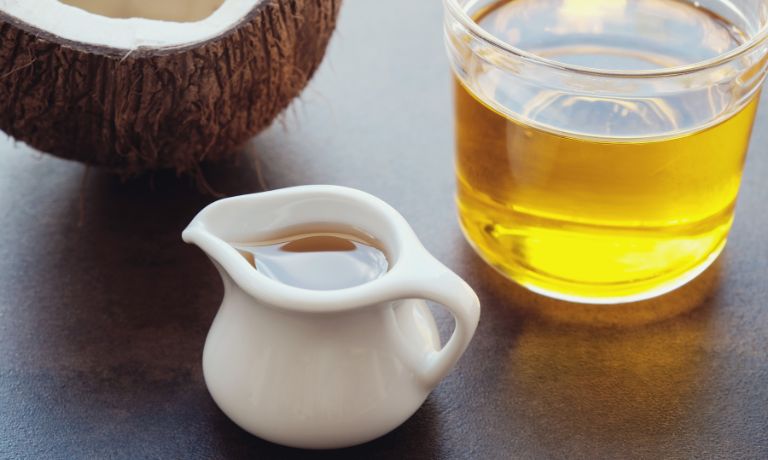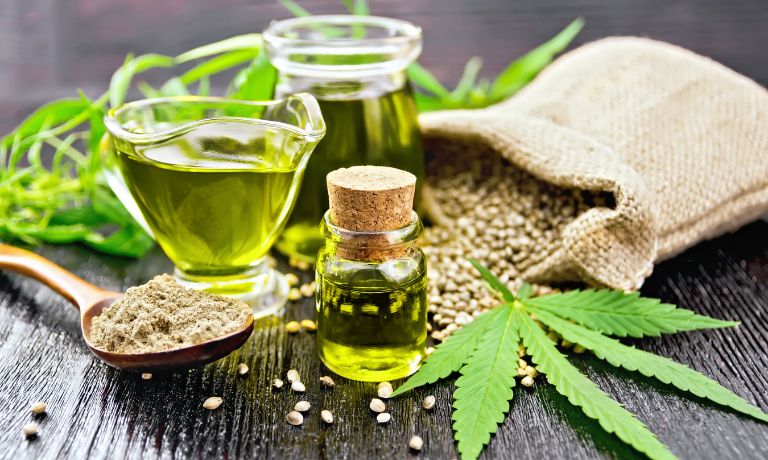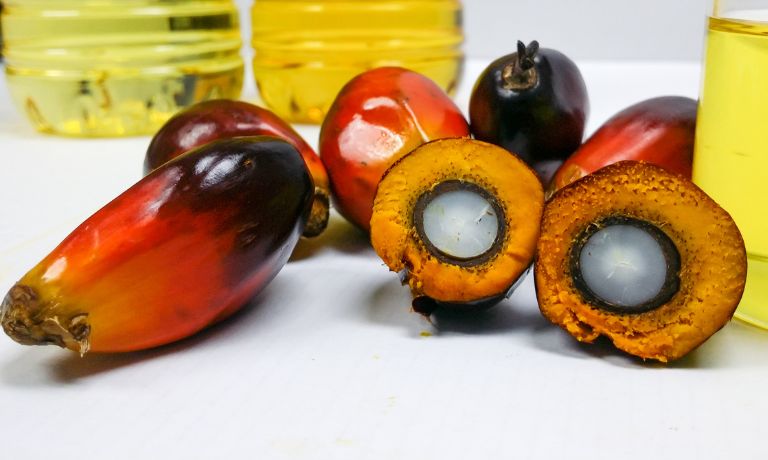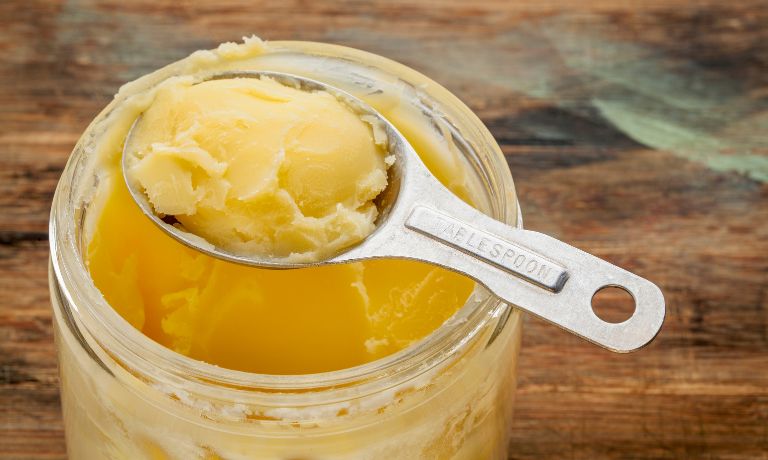Are you looking for an alternative to MCT oil? Look no further!
If you want to reduce your saturated fat intake or simply explore new ingredients, a wide variety of options are available.
In this blog post, we will explore some great options to substitute for MCT oil and their potential health benefits so that you can find the best choice for your unique needs.
What Is MCT Oil?
MCT (medium-chain triglyceride) oil is a saturated fatty acid with numerous health benefits.
MCT oil is commonly used in cooking as an alternative to other traditional fats such as butter or vegetable oils since it has a neutral flavor and a high smoke point.
It can also be used in place of butter in baking recipes to reduce the amount of saturated fats and increase the health benefits.
Additionally, MCT oil is often added to smoothies, coffee, tea, salad dressings, and other recipes as it boosts energy and helps promote healthy digestion.

Substitutes For MCT Oil
Plenty of alternatives are available if you have difficulty finding MCT oil or simply want to try something else.
Coconut Oil
Coconut oil is a type of fat derived from the flesh of mature coconuts harvested from the coconut palm.
It has become increasingly popular in recent years due to its health benefits.
Coconut oil has a rich, buttery flavor and aroma and can be used as a cooking oil or an ingredient in other recipes.
It has a high smoke point when heated, making it ideal for sautéing, baking, stir-frying, and other cooking techniques.
In addition to its culinary uses, coconut oil is popular in many beauty products, from lotions to bath oils.
It can even be used as a natural alternative for skin or scalp treatments due to its moisturizing properties.

Hemp Oil
Hemp oil is a natural and versatile cooking oil made from the hemp plant’s seeds.
Hemp oil has a nutty flavor that makes it ideal for many dishes and a nutritional boost to salads and other meals.
It also contains essential fatty acids, such as omega-3s and omega-6s, making it even more beneficial than other cooking oils.
Hemp oil is incredibly versatile and can be used for baking, roasting, sautéing, and even as a substitute for butter.
It is easy to find in most grocery stores or online retailers.

Fish Oil
Fish oil is an edible oil derived from fish or other marine animals. It is a rich source of omega-3 fatty acids.
Additionally, fish oil is rich in vitamins A, D and E, making it an excellent source of nutrition.
Fish oil has been used in cooking for centuries, adding flavor to many dishes.
It’s often found in Mediterranean cuisine, as well as in other cultures around the world.
Fish oil can be used as a cooking oil for deep-frying, sautéing, baking and grilling.
It’s also often used in sauces and marinades to add flavor and texture to dishes.

Palm Kernel Oil
Palm Kernel Oil is an edible oil from the fruit of the palmitic acid-rich palm tree kernel.
It is commonly used in cooking due to its high smoke point and semi-solid texture at room temperature, making it an ideal choice for frying and baking.
In addition to being used in traditional dishes, it can also be found in various packaged and prepared foods.
It is often used in margarine, shortening, chocolate, ice cream, salad dressings, and even soaps and cosmetics.
Palm kernel oil can be substituted for other fats or oils in many recipes.

Extra Virgin Olive Oil
Extra Virgin Olive Oil is an oil produced from olives that have been cold-pressed and unrefined.
It contains high levels of antioxidants, monounsaturated fatty acids, and vitamins E and K.
It is an incredibly versatile cooking oil, suitable for high-heat and low-heat dressing or marinating.
When cooked over high-heat, extra virgin olive oil keeps its flavor and nutrition intact.
It can also be a healthy butter or other fat alternative in baking recipes.
When used cold, the oil adds flavor and texture to salads, pasta dishes, dips, and marinades.
Its strong taste also makes it a great accompaniment to many dishes, such as grilled meats and fish.
Regardless of how it is used, extra virgin olive oil adds flavor and nutrition to any dish, making it a favorite among home cooks everywhere.
Butter
Butter is a dairy product made of churning cream or milk.
It is very high-fat, making it great for making cakes and other desserts moist and rich.
It is widely used as a spread for bread and toast, in baking, and as an ingredient in cooking.
You can use butter to give flavor to cooked foods, such as vegetables and meats.
Butter can be salted or unsalted, depending on the desired taste.
Unsalted butter is generally used for baking, containing no added salt.
Salted butter is often used for spreading on bread and toast or in cooking savory dishes like sauces and gravies.
When using butter in cooking, use the right type and amount, as too much butter can make a dish heavy.
Butter should always be stored in a cool, dry place, preferably in an airtight container.
This will help preserve its flavor and texture for longer.

Goat Milk
Goat milk is a type of milk that has been used for centuries in various parts of the world.
It is higher in fat and protein than cow’s milk and contains more minerals and vitamins than cow’s milk.
It has a naturally sweet flavor with a creamy texture.
Goat milk is a great calcium and protein source, making it a great substitute for MCT oil when used in baking or other recipes that call for fats.
Goat milk can be added to smoothies, soups, and sauces.
It can also substitute for dairy products in baking recipes or other dishes that call for cream or milk.
You can find goat milk at most grocery stores and health food stores.

FAQs
Can Coconut Oil Replace MCT Oil?
Yes, coconut oil can be used as a replacement for MCT oil.
Coconut oil contains medium-chain fatty acids similar to the ones found in MCT oil.
Can Vegetable Oil Replace MCT Oil?
No. Vegetable oil contains a different type of fatty acids than MCT oil, meaning it does not provide the same potential benefits as MCT oil.
In addition, vegetable oils are more susceptible to oxidation.
They can be less stable when heated, so they may not be ideal for cooking or baking at high temperatures.
Is Virgin Olive Oil Considered MCT Oil?
No, virgin olive oil is not considered a Medium Chain Triglyceride (MCT) oil.
MCT oils are triglycerides composed of medium-chain fatty acids with shorter carbon chains than other dietary fats.
Conclusion
MCT oil is a great alternative to traditional cooking fats and oils but it can be expensive and not always available.
Luckily, plenty of substitutes provide the same benefits and flavor.
Coconut oil, hemp oil, fish oil, palm kernel oil, extra virgin olive oil, butter, and goat milk are all excellent options to substitute for MCT oil in your cooking.
Each has a unique flavor and benefits, so choose the right one for your dish.

